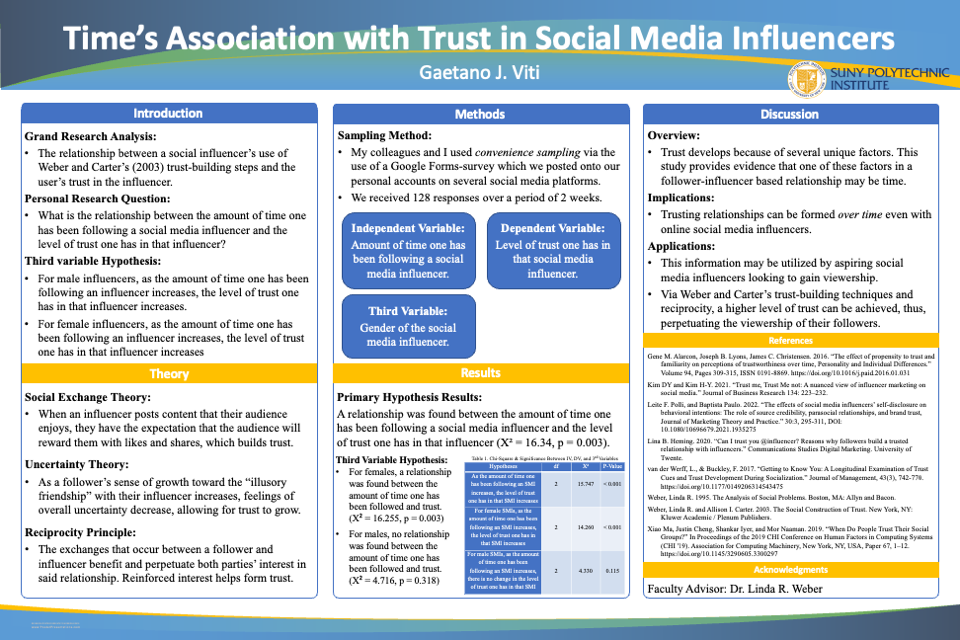Time’s Association with Trust in Social Media Influencers
Gaetano Viti, Linda Weber
Sociology, College of Arts and Sciences, SUNY Polytechnic Institute, Utica, NY, USA
The research investigated shows the relationship between a social influencer’s use of Weber and Carter’s trust-building steps and the user’s trust in the influencer. The specific trust-building step portrayed in this research is trust’s development over time. The independent variable is the amount of time one has been following an influencer; the dependent is the level of trust one has in that influencer; and the third is the gender of the influencer. The primary hypothesis is, as the amount of time one has been following a social media influencer increases, the level of trust one has in that influencer increases. For male influencers, as the amount of time one has been following an influencer increases, the level of trust one has in that influencer increases. For female influencers, as the amount of time one has been following an influencer increases, the level of trust one has in that influencer increases. The significance of this study is to highlight the association between the level of trust one has in an SMI (social media influencer) and the duration they have been “influenced” by that SMI for. Data collection methods included convenience sampling via the use of a Google Forms-survey which was posted onto several social media platforms by myself and my colleagues’ personal accounts. We received 128 responses over a period of 2 weeks. SPSS was then used to compile and analyze the results obtained from the Google Form survey. The results of this study indicate there is an existing association between amount of time one has been following a social media influencer and the level of trust one has in that influencer. This is also true for females, however there was no association between males in regard to time and trust.

